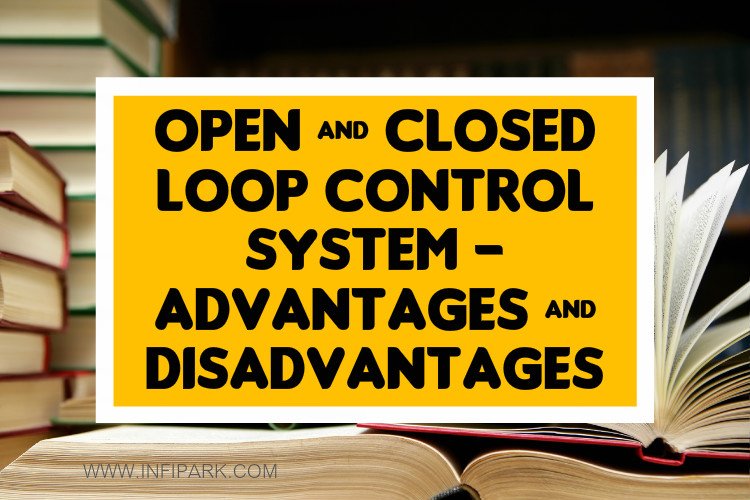Advantages and Disadvantages of Open-loop Control System

Open-loop control systems offer certain advantages and disadvantages compared to closed-loop control systems. Here are some of the key advantages and disadvantages of open-loop control systems:
Advantages:
Simplicity: Open-loop control systems are often simpler in design and implementation compared to closed-loop systems since they do not require feedback sensors or mechanisms for comparing the system's output to the desired setpoint. This simplicity can lead to lower cost and easier implementation, making open-loop systems suitable for many applications.
Fast Response: Since open-loop control systems do not rely on feedback from the system's output, they can often respond more quickly to control commands. The control action is predetermined based on the desired setpoint, allowing for rapid execution of control actions without the need for feedback processing.
Predictability: Open-loop control systems provide predictable and repeatable control actions based on predetermined setpoints and control algorithms. This predictability can be advantageous in applications where the system behavior is well-understood and consistent.
Stability: In some cases, open-loop control systems can be inherently stable, especially when the system dynamics are simple and predictable. Since there is no feedback loop that can introduce instability, open-loop systems may offer stable control performance under certain conditions.
Disadvantages:
Lack of Adaptability: One of the main drawbacks of open-loop control systems is their lack of adaptability to changes or variations in the system's behavior or external conditions. Since they do not adjust the control action based on feedback, open-loop systems may not effectively compensate for disturbances, uncertainties, or nonlinearities in the system.
Sensitivity to Variations: Open-loop control systems are sensitive to variations or disturbances in the system, as they do not adjust the control action based on feedback. Any deviations from the desired setpoint or changes in the system dynamics can lead to errors in the control output, reducing the system's accuracy and performance.
Limited Robustness: Open-loop control systems may lack robustness, especially in dynamic or uncertain environments. Without feedback to correct for errors or disturbances, open-loop systems may struggle to maintain accurate control performance under changing conditions or unexpected events.
Risk of Error Accumulation: Errors in open-loop control systems can accumulate over time, leading to significant discrepancies between the desired setpoint and the actual system output. Since there is no feedback mechanism to correct for errors, any inaccuracies or deviations from the desired setpoint may persist indefinitely.
Overall, while open-loop control systems offer simplicity and fast response times, they may not provide the robustness, accuracy, and adaptability required for many complex or dynamic control applications. In such cases, closed-loop control systems, which incorporate feedback to adjust the control action based on the system's output, are often preferred for their superior performance and stability.
Thank you,